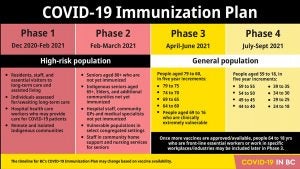Background From Provincial Framework Agreements:
BCPSEA and the K-12 Support Staff Unions first agreed to establish a Provincial Job Evaluation Plan, possibly including a regional or local approach, as part of the 2014-2019 Provincial Framework Agreement (PFA). The job evaluation tool used is based upon the CUPE gender neutral job evaluation plan with modifications to fit the needs of the K-12 sector. The Provincial Job Evaluation Steering Committee was established in 2015 and seven (7) districts with CUPE locals piloted the plan throughout 2018 and 2019. Ten (10) additional districts, including two (2) with locals other than CUPE, have been identified for a second pilot of the plan.
The 2019-2022 PFA confirmed that the work of the Provincial Job Evaluation Steering Committee would continue as follows:
- Review the results of the phase 1 pilot and address any anomalies identified.
- Expand the pilot to accommodate ten (10) additional districts/locals including at least two (2) districts with locals other than CUPE to confirm the validity of the tool and the benchmarks.
- Rate the provincial benchmarks and create a provincial job hierarchy.
- Utilize the provincial job hierarchy to evaluate local district hierarchies.
- Identify training requirements to support implementation of the provincial job evaluation plan.
The 2019-2022 PFA recognizes that the provincial job evaluation process is potentially lengthy and onerous and provides the opportunity for the engagement of additional job evaluation consultants to assist with job evaluation work. It also recognizes the established management right of employers to determine local job requirements and job descriptions. The 2019-2022 PFA contemplates the disbursement of available JE funds commencing January 2, 2020 or as mutually agreed.
Phase 1 Pilot:
As previously indicated, the seven (7) phase 1 pilot districts are:
School District 06 (Rocky Mountain)/CUPE Local 440
School District 28 (Quesnel)/CUPE Local 4990
School District 36 (Surrey)/CUPE Local 728
School District 42 (Maple Ridge/Pitt Meadows)/CUPE Local 703
School District 53 (Okanagan Similkameen)/CUPE Local 523
School District 63 (Saanich)/CUPE Local 441
School District 68 (Nanaimo Ladysmith)/CUPE Local 606
Throughout 2018 and 2019, the joint job evaluation committees in the phase 1 pilot districts provided feedback to the job evaluation consultants on the draft provincial benchmarks and ratings and completed preliminary matches for each district job to the provincial benchmarks. They also provided feedback on the pilot 1 process through completion of a questionnaire.
Phase 2 Pilot:
The Steering Committee received a large number of expressions of interest from school districts and locals for participation in the phase 2 pilot. A number of factors were used by the Steering Committee in the selection process including: geographic location; district size and other demographic considerations; status of existing job evaluation process and job descriptions. Based on the provisions of the PFA, only ten (10) districts could be selected, two (2) of whom had to be non-CUPE locals. The final selection of the pilot districts was conducted by the Steering Committee. Unfortunately, not all districts and locals that expressed interest could be selected.
The districts and locals that were selected for the phase 2 pilot are:
- School District 22 (Vernon)/CUPE 5523
- School District 33 (Chilliwack)/CUPE 411
- School District 45 (West Vancouver)/WVMEA
- School District 60 (Peace River North)/CUPE 4653
- School District 69 (Qualicum)/CUPE 3570
- School District 73 (Kamloops-Thompson)/CUPE 3500
- School District 75 (Mission)/CUPE 593
- School District 83 (North Okanagan Shuswap)/CUPE 523
- School District 58 (Nicola Similkameen)/CUPE 847
- School District 78 (Fraser Cascades)/CMAW 2434
The joint job evaluation committees in the phase 2 pilot districts are scheduled for training in early February and will be asked to complete a number of job evaluation tasks to contribute to the work of Steering Committee.
Next Steps:
Following receipt of data from pilot 2, the Steering Committee will finalize the provincial benchmarks and ratings and will address final modifications to the job evaluation plan, such as reviewing job matches identified by the pilot districts, rating jobs not matched and determining point weighting. After these steps are complete, the Steering Committee will determine a process for inclusion of remaining districts and locals in the province.
Pay Adjustment Process:
The 2019-2022 Provincial Framework Agreement provided a commitment that “The disbursement of available JE funds shall commence by January 2, 2020 or as mutually agreed.” The Steering Committee acknowledges that implementation of the job evaluation plan will be retroactive to January 2, 2020 within the funding provided under the PFA.
Provincial Job Evaluation Steering Committee Members:
Chris Losito – CUPE Staff
Jane Massy – CUPE, Local 947
Paul Simpson – CUPE, Local 379
Warren Williams – CUPE 15 & President of K-12 Presidents’ Council
Ranjit Bharaj – BCPSEA
Maureen Carradice – BCPSEA
Lynda Minnabarriet – School District 74 (Gold Trail)
Royce Norum – School District 57 (Prince George)
Advisors:
Peter Coombes – CUPE Staff Advisor
Harpinder Sandhu – CUPE Staff Advisor
Jackie Bonsal – BCPSEA Staff Advisor
Joe Strain – BCPSEA Advisor
Should you have any questions, please contact Chris Losito (CUPE) at closito@cupe.ca or Maureen Carradice (BCPSEA) at maureenc@bcpsea.bc.ca.
View PDF.


